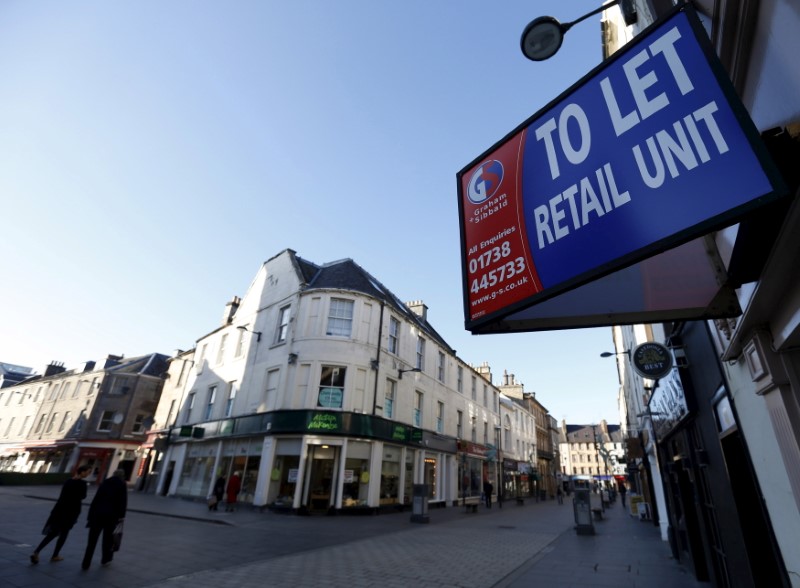LONDON (Reuters) - British business confidence has fallen sharply since last Thursday's inconclusive election that left Prime Minister Theresa May weakened ahead of Brexit talks, according to a survey by the Institute of Directors published on Monday.
The survey of nearly 700 members of the business group also exposed deep concern over the political uncertainty and its impact on Britain's economy.
May failed to win a parliamentary majority in the election. Her hopes of forming a government now lie with winning support from Northern Ireland's Democratic Unionist Party, which won 10 seats in the election. [nL8N1J8039]
The IoD found a negative swing of 34 points in confidence in the UK economy from its last survey in May.
While 20 percent of members were optimistic about the economy over the next 12 months, some 57 percent were either quite or very pessimistic - a -37 "net confidence" score. That compares with a -3 percent score in May.
"It is hard to overstate what a dramatic impact the current political uncertainty is having on business leaders, and the consequences could – if not addressed immediately – be disastrous for the UK economy," said Stephen Martin, director general of the IoD.
"The needs of business and discussion of the economy were largely absent from the campaign, but this crash in confidence shows how urgently that must change in the new government."
The IoD survey said its members saw no clear way to quickly resolve the political situation, feeling that a further election this year would have a negative impact on the economy.
They are keen to see quick agreement with the European Union on transitional arrangements for the UK’s withdrawal from the bloc, and clarity on the status of EU workers in Britain.
BUSINESS NEED
Also on Monday, Carolyn Fairbairn, director general of the Confederation of British Industry, said there was now a risk that businesses would cut back on investment which has largely held up since last year's Brexit vote.
"When uncertainty reaches such a level then you get pause buttons beginning to be pressed and we don't want to see that," she told the BBC.
"So I think it's time for a bit of a reset, a bit of a mindset change to listen really well to what businesses need."
Fairbairn said she hoped to see the Brexit negotiations on "a really positive track so we can see an outcome on really good access to the single market."

Earlier on Monday, figures from credit card firm Visa showed British consumers turned more cautious even before the shock election result. The data found households cut their spending for the first time in nearly four years last month.[nL9N1ID00W]